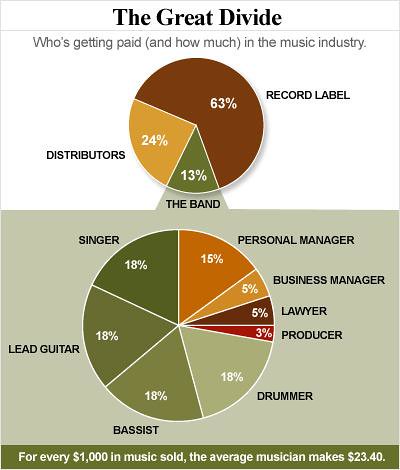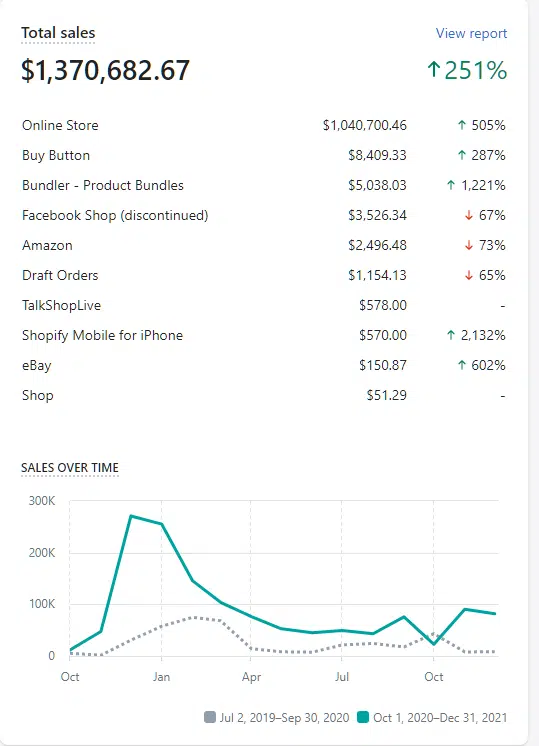5 Reasons You Should Never Sign A Major Label Record Deal
Quickly and easily deploy time-tested marketing campaigns with Indepreneur's IndiePRO training library. Become an IndiePRO member and learn how to get exposure and a fan base, build an email or text list, and sell music and merch directly. Learn more now!

Updated on August 24th, 2022 by Circa
Chance The Rapper…
Frank Ocean…
Macklemore…
Anni DiFranco…
Russ…
Anderson Paak…
The list of highly successful career musicians choosing to sidestep a record deal and stay independent is growing. And, it’s getting more powerful. These and many more success stories illustrate the fast-spreading knowledge that signing a major label record deal is not the fantastic thrill ride of success and admiration that it is reported to be.
How do I know?
Well, as Founder & CEO of Indepreneur, my life mission is to empower artists to not sign a record deal. Over the last 5 years, I’ve helped artists go from zero fan base to millions of fans and world tours – and those exact same artists have turned down every record deal lobbed at them because they truly didn’t need the label’s “help”.
Working in the industry, I’ve been the go-to guy for my artist friends when they need a contract reviewed – and I have seen unspeakable horrors written in legal language. Record deals and “production deals” have only gotten more restrictive, less fair, and easier to turn down over the years.
In short: I’ve seen some pretty morally reprehensible professional behavior.

Have I cataloged the details of every record deal and major label career in the past 70 years? No, absolutely not. I’m sure there are exceptions. But, I’ve seen enough. More than enough.
The major label industry is dirty. The mechanisms of this record industry are exploitative and detrimental to creative people. Whatever ounce of passion and stardust pushes professionals into this career quickly vanishes, only to be replaced by distant cynicism. The major record labels are systemically out-of-touch, terrible at their one job (financing and marketing), and most major label deals equate to the worst possible loan a business could ever take out. Loan terms this bad don’t exist in any other industry or business – artists are truly the lucky ones.
The who, why, and what of that story is far longer than this article. Today, we’re just going to outline the top 5 reasons why you should put signing with a major label out of your mind and, as we have been shouting from the rooftops for ages, “STAY INDIE!“
1. A Record Deal Can Make COST A Fortune
When you sign a major label record deal, you are often signing away the possibility of making any money off of record sales. Seems kind of backwards, right?
According to TheRoot, for every $1000 in music sold, the average contracted recording artist makes about $23.40. For those of you keeping score, that’s 2.34% of gross. That sucks.
Is this because music is difficult to profit off of?
No.
The screenshot above was taken from one of our client accounts at our IndieX agency – last year they made over $2 million in direct sales to their fan base despite not having a record on Billboard charts, not being on bus benches and billboards all over Los Angeles, and not being signed to a record label.
The average full-length record deal is literally a mile-long minefield of hidden costs, bullshit fees, and recoup clauses from the 50s that were left in to screw you over. Don’t believe me?
This article from TechDirt touches on a clause that is common among modern record deal contracts: Breakage. In the days of vinyl, shipping music across the country could easily result in a few broken records. So, record labels charged artists a 20% “breakage” fee. That means that the record industry was claiming that 1 in every 5 vinyl records created would break in transit! I call bullshit, but it gets a lot worse…
Obviously, vinyl is far more delicate than a cassette tape or a CD in a big plastic case. Even still, record labels continued to charge a 20% breakage fee when the industry largely shifted over to tapes and CDs. Luckily, streaming and digital downloads represent a majority of revenue now. So, the days of bending artists over barrels for a 20% breakage fee are over…
Oh wait, they’re not! Record labels, even today, try to charge 20% fees for breakage and what they are now calling “digital breakage”.
Why? Because “fuck you“, that’s why.
Breakage, container charges, free goods, and “reserves”, are all recuperative clauses that get buried in long form record deal contracts. These clauses are engineered to perform one orchestrated task: confuse and exploit artists for almost 75% of their royalty rate. Notice I said “royalty rate” and not “revenue”. That’s because record deal contracts often allot only 10% of profit (if you’re lucky) as a royalty to the recording artist.
Essentially, most record deals are a loan – they are loaning you an upfront sum that is entirely recoupable…
…”recoupleable” meaning “you pay for it at the end of the day”…
…and the advance they give you is intended to make your eyes widen while they shove a bunch of other wasteful and expensive items on to your bill in the months and years to follow.
They want you to pay attention to the large upfront number, not the myriad ways in which they will be able to charge you 20-60% more than that number in recoupment. And, when all is said and done, and your “advance” is finally repaid… they get to take home 50-90% of any revenue you make after that – again, eaten away at by ridiculous fees.
As if that wasn’t bad enough, this royalty rate is negatively impacted by the clauses we just went over. But it gets worse…

Credit: TheRoot
Your royalty is calculated out of profit – that is, any expense your record label deems necessary in the process of creating your album can be written off against your revenue. That advance we talked about? Add onto it the cost of recording, adminstration (see: filling out forms, something they often forget to do), and marketing. The record industry pays out about 20% of all the revenue it makes to A&R and marketing (see: just marketing).
Let’s back up for a second…
I just said the record industry “pays out” roughly 20% of the revenue it makes to marketing. Unfortunately, the record industry doesnt actually pay those costs – you do. Record labels, at the end of the day, never pay a cent of their money for what amounts to the worst period marketing period ever (period). They are completely clueless when it comes to marketing artists for the purpose of generating sales.
Unfortunately, terrible marketing for 20% of all the revenue you make (before they take their cut!) is not the only expense you’ll pay out of your end of the profits…
While you may only need your band mates and a good sounding room to record an album, your label will be saddling you up with songwriters, expensive studios, top producers, session musicians, and more just to make sure you’re making something that they deem to even be marketable in the first place.
You don’t actually have much say in this process. You can’t just tell them you don’t need a songwriter so that you can keep more money. If your A&R says you need a songwriter, you’re getting a songwriter.
Now, pile all of those costs on top of your entirely recoupable album advance, tour support, and independent radio promotion (see: institutionalized bribery) and the chances that you will ever make any money off of your recorded music drop to a definitive 0%. In fact, you may end up owing the record label money, even if you sell millions of albums.
But surely it’s worth it right? Because you couldn’t possibly market yourself online and make money all by yourself. A label is going to give you access to massive exposure and marketing strategies that can help you blow up worldwide…
Right?
2. Getting Offered A Record Deal Is A “Catch 22”

Unless you are able to build a sizable following all by yourself, a major record label probably won’t be interested in signing you. If they do, your contract will be awful. Like, not-even-worth-a-meeting awful. Like, emailed-to-you-blank-without-a-conversation awful.
But, let’s say you do build that massive following (50-100k) and record labels come sniffing for your secret sauce. They’re going to buy you weed, take you to the Spotify offices, and tell you you’re the coolest fuckin’ guy/gal in the whole world. They’re going to make you feel like your time has arrived; all you’ve got to do is take it to the next level…
Can they help you take it to the next level? Sure – according to music business consultant Moses Avalon, major labels have a success rate of roughly 0.0465% – about 1 in 2149 artists/bands signed to a major label ever reach the superstar status required to have a chance at actually making money.
Major record labels won’t help you market – but they will prevent you from releasing any music until you figure out how to go viral on TikTok, even if you’re already famous. Take it from Halsey, FKA Twigs, Coi Leray, Florence Welch, Ed Sheeran, Charlie XCX, Gavin DeGraw, Sizzy Rocket, and countless others.
Artist Trevor Daniel went viral on TikTok and inked a deal with Alamo Records (owned by Sony Music Entertainment). A year later, he told Rolling Stone that the label wouldn’t let him release his major label debut unless he did the same thing again – he’s literally handcuffed from dropping tracks unless they go viral!
As a professional artist marketer, I’ll come right out and say it: every single major record label suck, suck, sucks at marketing. Why? How?
Well, marketing has two major schools of thought: branding and direct response or direct-to-consumer.
Direct response marketing is what entrepreneurs and startups use to build a business sustainably – in order to be a successful business, you need to both survive and grow. You need to grow large enough that your customer base carries your expenses every year without needing to acquire new customers. You need to survive long enough for that to happen.
So, you go directly to likely customers, perfect strangers, and develop a relationship with them via advertising, email/direct mail, and can’t-resist sales offers. That is the spirit of direct response marketing: sales without salespeople.
Branding, on the other hand, is more appropriate for companies that are so large they are now simply competing for the biggest slice of the TAM (total addressable market). This is the type of marketing that is more appropriate for the Coca-Cola’s and Tide laundry detergents of the business world. The goal of branding is to convince large swaths of the population that your product is synonymous with “freedom” or “youth” or “cleanliness”. It is a large scale psychological operation on the consumers of the world – and it is very, very expensive.
So what type of marketing does the music industry employ for brand new artists that don’t have any customers yet?
You guessed it…

Oh look! An expensive bus bench ad! I think I’ll go give this artist $0.004 by streaming his new record…
This type of marketing would not be appropriate for a brand-new startup. It’s not even appropriate for businesses with $10 million in annual revenue. But, it is the exact type of “marketing” that kids with hip backpacks in record label marketing departments employ to promote artists.
What are they selling? What product’s revenue is supposed to recoup all this marketing cost? $0.0004 streams on Spotify. This is despite the fact that 99.99999% of artists pay their bills with touring, merchandise, brand partnerships, and digital content. Unfortunately, you’re not going to see an offer for a new artist’s limited edition merch on a bus bench ad any time in the near future.
I could go on for ages about this specific topic; suffice to say that major record labels run up artist’s bills using the wrong type of marketing for the wrong type of business and it results in criminally low return on investment. Our agency, IndieX, thrives on this fact – we help major artists scoop up hundreds of thousands to millions of dollars of annual revenue they aren’t paying attention to through direct sales to their fans for… wait for it… actual products!
Let’s just look at the end result of all of this inappropriate mass-media branding:
For the past three decades, almost 10% of all songs on the Billboard Top 100 were by one-hit wonders.
What does it say when a company can ship millions of units for its first product but can’t get anyone to buy the follow-up? Often times, in the music industry, that gets blamed on the inventor – the artist – NOT the company promoting the product – the major label. That is, when second albums flop, the labels assume that the artist just couldn’t produce another hit, they don’t think of the fact that they lost 1,000,000 customers that they paid 200% of the revenue to acquire in the first place.
3. The Record Industry Encourages Genericized Sounds
Anyone who is making money in marketing will tell you that the first thing you need to do is select a single, target market. Whether you have a product yet or not, your chances of marketing success fall dramatically when you try to market your product to an entire age group or gender.
This is a big reason why 99% of those signed to a major label deal are shelved. It’s also why most of the financial wins in the music industry are represented by some of the most forgettable music in the history of artistic endeavor. A product that “isn’t for everybody” is a marketers dream…
…and a major record labels worst nightmare.
Major labels aren’t looking to develop a business around a profitable product. That’s not specific enough. They are looking for blinding, obscene, almost nauseating levels of fame and success. So, they are willing to churn and burn 99 creative souls in order to find 1 artist they can test against hundreds of others. They don’t care to help you grow a profitable business with your 10-100k fans.
So what are they hoping to find?
Well, you need to be good looking, that’s for sure. America’s musical stars are, by and large, fairly gorgeous people. There aren’t a lot of ugly ducklings in the Billboard Top 100.
Then, provided you are bright and shiny enough, a huge section of the population needs to be able to relate to you and your sound. This means that your sound cannot be wildly different from anything that is on the Top 100 right now. As explained in this article, the Billboard Top 100 gets more and more generic every single cycle. And it makes sense: when you don’t have a target market, a generic product will sell best.
So, if you have anything fringe about you, your label handlers will be quick to smooth out your rough edges. That means changing your wardrobe, your hairstyle, and even your subject matter.
As we’ve already discussed, labels don’t know how to market very well. So, they will usually grasp desperately at whatever success got you into their board room in the first place. Did you blow up on YouTube with a party song? Great. Say hello to your party album. Every song you do from this point on will be about beer pong, drunk girls, and skipping class. You hit a vein with the partying college kids and now they’re going to milk it for all it’s worth! Go ahead, try to make a song about something else. Your A&R will tell you it’s “not really what we’re looking for”.
Then, they’ll tack on a songwriter to your bill to help you figure out how many times you guys can actually fit the word “party” into a song.
Labels spend so much money employing this mass marketing method that they are butt-clenchingly terrified of trying anything new. If you get to major label contract level, chances are they are going to double down on whatever got you there (while simultaneously fucking it up).
Just ask Kid Ink or Chamillionaire or Trevor Daniels or any of the myriad artists who were pigeon-holed by their own record label, preventing them from ever evolving with their audience.
4. The Record Deal Has A Devastating Failure Rate
30-year music business veteran and formally noted expert on the subject, Moses Avalon, wrote this amazing article breaking down the numbers behind the major label business model.
It should come as no surprise to you that getting signed to a major record label is like winning the lottery – in the sense that most people don’t win it and those who do usually end up right back where they came from.
I don’t mean to make this whole thing all “doom and gloom”, so let’s just look at the numbers:
According to Avalon, 1 in 42 acts submitting to record labels do get signed. This number is a liberal estimate, as not all the acts signed in a given year actually submitted demos, some are scouted. But, pending that you actually are one of the lucky acts that do get signed, you still face a treacherous road of disappointment, failure, and abject consequences.
Avalon goes on to explain that, these days, 99% of those actually signed to major labels each year never get to release their first album. In fact, only 0.2% of acts signed to a major label manage to avoid getting dropped from that label in the process of fulfilling their contract.
This can be for many reasons. As explained in this BuzzFeed article, sometimes labels are acquired, merged with other labels, or unceremoniously shut down. All the artists in development at that time are usually caught in the shuffle. Sometimes, A&Rs get fired and their signees go on the back burner…
Sometimes, labels are only signing you to make sure you never release your music…
5. Artists Get Shelved On Purpose

You won’t find a whole lot about this on the Internet. You’ll hear mentions of it in interviews with label veterans; you may read about it in books involving the music industry. But, almost every other shitty thing that record labels do has been covered extensively in some article or another.
So, it’s time that this information be made as public as possible.
Out of the 99.8% of artists signed to a record label and dropped before fulfilling their contract, a certain percentage are intentional failures.
That is, major record labels will intentionally hold up an artist’s release and prevent them from ever seeing the light of day. The crime is almost unforgivable – but, the logic is pretty simple:
Let’s say, for example, it’s the year 2008, and you’re a teen pop singer. You’re white but vaguely urban, bright, shiny, ready for the big time…
Posting cover videos on YouTube, you start racking up millions of views and getting a loyal following. All of a sudden, label execs are starting to call your Mom asking about you.
Next thing you know, you’re flying all expenses paid to LA for a week of meetings with major record labels.
You and your family are excited for the bright future that is unfolding before you…

You meet with RCA and they seem excited about your future, too. They offer you a 5-album deal with a huge advance.
The next day, Atlantic offers you even more!
Then comes Island Records…

Island offers you more money than your family has made in the past 5 years, they promise you the whole world. They walk you through their massive plan, step-by-step, to turn you into the biggest pop star since Michael Jackson…
They have a 10-year plan that puts you in the drivers seat of the most successful music career of the 21st century…
And you and your family sign on the dotted line.
Game over.
What you didn’t know, was that for over six months, Island/Def Jam has been developing Justin Bieber: a young, white but vaguely urban, bright, shiny pop singer. You aren’t the biggest artist of the 21st century, he is. You’re just a threat.
Island could have ignored you, yes. They could have left you and your family alone. But, with you making waves on YouTube, one of their two competitors would definitely have signed you. Then, you would be in direct competition with their shiny new pop star. To Island/Def Jam, Bieber represents untold billions in revenue. So, they are more than willing to outbid their competitors to get you into a gigantic record deal.
We’re talking dictionary sized, player.

Island throws enough paper at you to keep you from recording, releasing, or even publicly performing a single song for the next half decade. Plenty of time for Justin to get a stranglehold on the marketplace.
Dream deferred.
Does this happen?
Yeah. It definitely happens.
Maybe, for some of them, the label had every intention of giving them a fair shot. Unfortunately, as many have scientifically documented, the Top 100 sound becomes more homogenized every year. So, if you’re getting signed to a major label, you probably sound like someone they care about (and have invested in) a lot more than you.
Conclusion
Am I saying that all 3 major record labels are shady?
Yes. But…
Am I saying that every contract they write is a scam perpetrated on creative people?
Yes, yeah. Definitely. That is absolutely what I am saying.
And I’m not alone…
Here is a great book on the subject. And another. And another.
Here are some great articles on the subject.
If you are fetishizing being signed to one of these gaping supermassive black holes, please stop immediately.



